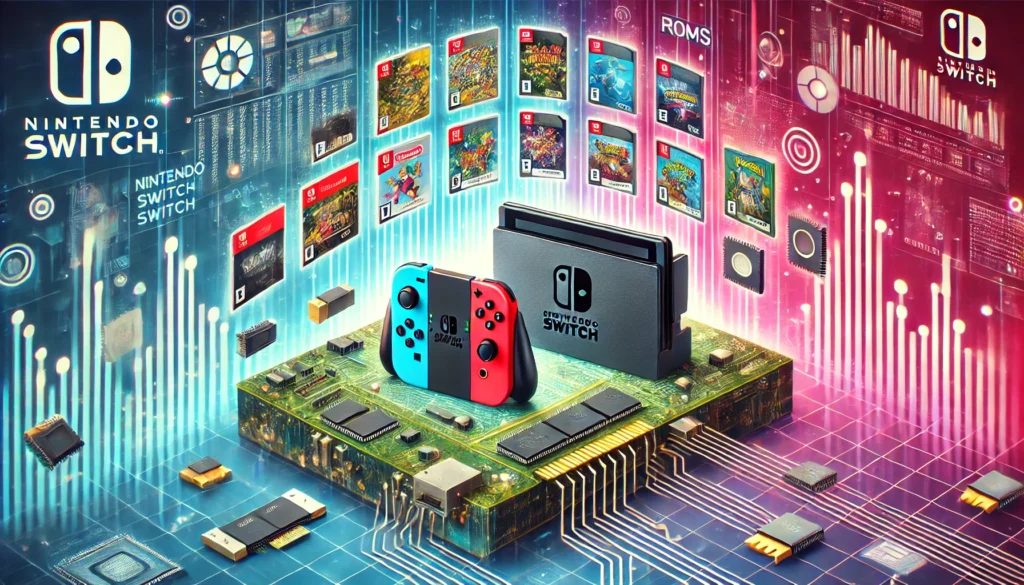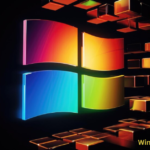Nintendo Switch has become a beloved console for gamers, thanks to its versatility, unique hybrid design, and extensive game library. However, as with most consoles, a scene has emerged around game preservation, emulation, and modding, giving rise to the use of ROMs (Read-Only Memory files) in the Nintendo Switch community. This article delves deep into the world of Nintendo Switch ROMs, explaining what they are, how they work, their legality, and the various aspects that surround their usage.
What Are Nintendo Switch ROMs?
Nintendo Switch ROMs are digital copies of games originally made for the Nintendo Switch console. These ROMs are essentially the game files that can be extracted from the original cartridges or downloaded in a format that the Switch can run. ROMs make it possible for people to play games on different platforms, such as emulators on computers or smartphones, without requiring the physical cartridge or hardware of the Nintendo Switch.
A Nintendo Switch ROM typically comes in the .XCI or .NSP file formats:
- .XCI (NX Card Image): This format is a direct dump of a Nintendo Switch cartridge. It contains all the necessary data from the cartridge, allowing the game to run on the Switch or an emulator without modification.
- .NSP (Nintendo Submission Package): This format is used for digital games downloaded from the Nintendo eShop. NSP files contain all the data for a game or application and can be installed on the Switch’s internal storage or an SD card.
These files are then used by emulators or other software to allow for game play outside the official Nintendo ecosystem.
Why Are ROMs Popular?
Several factors contribute to the popularity of Nintendo Switch ROMs:
1. Game Preservation
The lifespan of physical cartridges and discs is finite. Over time, they can degrade, get damaged, or even become lost. ROMs offer a means of preserving these games for future generations. By creating digital backups of games, enthusiasts can ensure that even if the physical copies become obsolete, the games can still be experienced and enjoyed.
2. Emulation
ROMs are integral to the world of emulation. Emulators are software applications that mimic the hardware of a console, allowing games to run on platforms other than the original console. For the Nintendo Switch, emulators like Yuzu and Ryujinx use ROMs to let people play Switch games on PCs, Mac, or even Android devices. This ability to emulate opens up opportunities for gaming on hardware that may be more accessible or affordable than a Nintendo Switch console.
3. Enhanced Gameplay
Some gamers use ROMs to experience games in ways not possible on the original hardware. Through emulators, players can improve graphics quality, apply mods, or utilize save states for an enhanced gaming experience. Emulators can sometimes offer better frame rates, higher resolutions, and a more personalized gaming setup than the standard Switch.
4. Access to Games
Switch ROMs provide access to games that may no longer be available or have become exceedingly rare and expensive. Limited-release titles, games that were only available digitally, or region-locked titles can be hard to find. ROMs give players the chance to enjoy these titles without the need to hunt for a physical copy or a region-specific console.
How Are ROMs Created?
Creating Nintendo Switch ROMs involves dumping or ripping the game files from the original cartridges or digital downloads. The process requires certain hardware, software tools, and technical know-how:
1. Dumping from Physical Cartridges
To create a ROM from a physical Nintendo Switch cartridge, you need a hacked or modified Switch console. Using specific tools like nxDumpTool or Lockpick RCM, you can extract the data from the cartridge and convert it into a digital file format (.XCI). This process involves copying the raw data stored on the cartridge onto an SD card, which is then transferred to a computer for further use.
2. Extracting Digital Game Files
Digital versions of Switch games can also be turned into ROMs using similar techniques. With a modified Switch, you can use tools to extract installed games from the system storage or an SD card, converting them into the .NSP format. These files are then saved and can be used with emulators or backup tools.
3. Downloading ROMs from the Internet
While not legal or ethical, some individuals choose to download pre-dumped ROMs from various websites. These files are typically shared by people who have already extracted the ROMs from their games and uploaded them to online repositories. However, this practice is a legal gray area and often violates the terms of service set by Nintendo and copyright laws.
Emulating Nintendo Switch Games
Emulation is the primary reason many people are interested in Nintendo Switch ROMs. As of now, two major emulators support Switch games:
1. Yuzu
Yuzu is an open-source Nintendo Switch emulator created by the same team behind Citra, the popular 3DS emulator. Yuzu has made significant progress in emulating a wide range of Nintendo Switch games, from indie titles to AAA releases. The emulator is compatible with both Windows and Linux operating systems and supports several ROM formats, including .XCI and .NSP.
Yuzu offers various features that enhance the gaming experience:
- Graphics and Resolution Scaling: Play games at higher resolutions than what the Switch hardware allows.
- Mod Support: Use mods to change game mechanics, graphics, and other elements.
- Save States: Save and load game progress at any point, which is not possible on the original hardware.
- Custom Controls: Map controls to keyboard and gamepad setups for a more personalized experience.
2. Ryujinx
Ryujinx is another popular Nintendo Switch emulator known for its user-friendly interface and high compatibility with various games. It’s open-source and supports Windows, Linux, and macOS. Similar to Yuzu, Ryujinx offers features like resolution scaling, mod support, and custom controls, giving players flexibility in how they enjoy their games.
Both Yuzu and Ryujinx require a key file (prod.keys) dumped from an actual Nintendo Switch console to decrypt and play the ROMs. This ensures that even if someone has the ROM file, they still need the console-specific keys to emulate the games legally.
Legal Aspects of Nintendo Switch ROMs
The legality of ROMs, emulation, and game backups is a complicated and often contentious issue. Let’s break down the legal aspects concerning Nintendo Switch ROMs:
1. Copyright and Intellectual Property Laws
Nintendo, like other game developers, protects its games under copyright law. ROMs are essentially copies of the game software, and copying or distributing copyrighted material without permission is generally illegal. Even though players may own the physical cartridge or a digital copy of a game, making a digital copy (i.e., a ROM) can violate copyright laws unless specific conditions are met.
2. Fair Use and Backup Copies
Some argue that creating ROMs falls under “fair use,” especially if done for personal, non-commercial purposes, such as creating a backup copy of a game you already own. However, this legal stance varies by region. In the United States, for example, the Digital Millennium Copyright Act (DMCA) makes it illegal to circumvent technological protection measures like those on the Nintendo Switch, even for personal use.
3. Downloading ROMs
Downloading ROMs that someone else has uploaded is typically illegal, regardless of whether you own the game. When you download a ROM, you are obtaining a copy that was created and distributed without the copyright holder’s consent, which is a clear violation of intellectual property rights.
4. Emulators
Emulators, by themselves, are not illegal. They are just software that mimics console hardware. The controversy arises when emulators are used with ROMs that were obtained illegally. In the case of Nintendo Switch emulation, using a ROM with an emulator is legal only if you have created the ROM from a game you own and have not violated any laws in the process.
5. Nintendo’s Stance
Nintendo has a strict policy against ROM distribution and emulation of its consoles. The company actively pursues legal action against websites that host ROM files and distributes takedown notices to protect its intellectual property. Nintendo also includes anti-piracy measures in its consoles and games to discourage the practice of copying and distributing ROMs.
Risks Involved with Nintendo Switch ROMs
While the use of ROMs can offer various benefits, there are notable risks involved:
1. Legal Consequences
Downloading and distributing ROMs is illegal in many jurisdictions, which can lead to lawsuits and fines. While most individuals are unlikely to face legal action, the websites hosting these files often become targets of litigation.
2. Malware and Viruses
ROMs downloaded from untrustworthy sources can contain malware or viruses that can harm your computer or steal personal information. It’s not uncommon for illegal ROM-sharing websites to include malicious software alongside the files they offer.
3. Hardware Damage
Using ROMs on a modified Switch console or installing them improperly can potentially damage the console. Modding the console to run unofficial software can void warranties and lead to the risk of “bricking” the device, rendering it unusable.
4. Bans from Online Services
Nintendo is vigilant about detecting modified consoles and unauthorized software. If you attempt to use a hacked Switch console online or play games using ROMs, you risk being banned from Nintendo’s online services. A banned console can no longer access the eShop, play multiplayer games online, or use other network services.
Ethical Considerations
Beyond the legalities, there are ethical considerations around the use of ROMs:
1. Supporting Developers
When you purchase a game, you directly support the developers and publishers who created it. Piracy, by contrast, undermines their ability to earn revenue, potentially impacting future game development. While using ROMs for games you own may seem harmless, downloading ROMs of games you haven’t purchased crosses an ethical line.
2. Game Preservation vs. Piracy
Many gamers argue that creating ROMs serves the purpose of game preservation, especially for titles that are no longer available through official channels. However, this argument becomes less clear when considering current-generation consoles like the Switch, where games are still being actively sold and supported.
How to Legally Enjoy Nintendo Switch Games with Emulators
If you’re interested in using Nintendo Switch ROMs and emulators but want to stay on the right side of the law, here are a few steps to consider:
1. Dump Your Own ROMs
If you own a Nintendo Switch and the games you want to play, you can legally dump your own ROMs using appropriate tools and methods. This way, you’re not downloading or distributing files that belong to someone else.
2. Use Official Channels
For games that are still available, purchase them through official channels like the Nintendo eShop or physical retailers. Supporting the industry ensures that developers can continue creating new games and content.
3. Abide by Regional Laws
Be aware of the laws in your region regarding game backups, emulation, and digital rights management (DRM). Some countries have stricter regulations than others, so what may be permissible in one location could be illegal in another.
Conclusion
Nintendo Switch ROMs play a significant role in the world of game preservation and emulation. They offer gamers a way to experience titles in different ways, preserve their favorite games, and enjoy enhanced gameplay through emulation. However, the legality and ethical implications of using ROMs are complex and often contentious.
While the idea of preserving and enjoying games through ROMs can be appealing, it’s essential to respect the intellectual property rights of game developers and publishers. Legally dumping your own game files, using emulators responsibly, and supporting the gaming industry through official purchases are ways to balance the desire for game preservation with respect for creators’ rights.
In the end, the world of Nintendo Switch ROMs is a mixed bag, filled with both possibilities and pitfalls. Understanding the legal, ethical, and technical aspects of ROM usage can help you navigate this landscape responsibly and make informed choices about how you play and preserve your favorite Nintendo Switch games.







